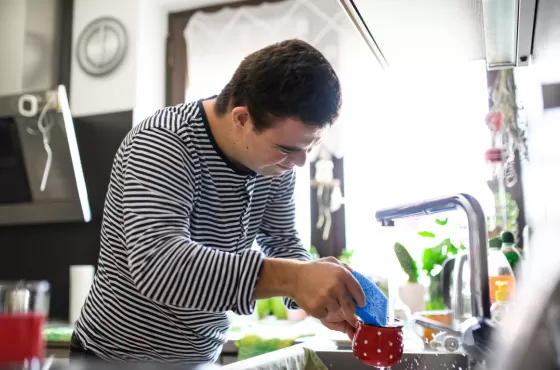The Role of a Supported Independent Living SIL Provider
The world of the NDIS is constantly changing and it’s important to keep up with the latest developments. There are a lot of different types of NDIS funded support and it can be hard to keep track of what each provider does.
As a NDIS participant you may be entitled to receive support from a Supported Independent Living (also known as SIL) provider.
What does a SIL provider do?
SIL providers offer a range of support services, including:
- Assistance with daily living activities: This includes help with personal care, housekeeping, meal preparation, laundry, and shopping.
- Assistance with health and well-being: SIL providers will help in the management of your health conditions, coordination of medical appointments, and general wellbeing.
What can a SIL provider do?
Depending on your funding, a SIL provider might also be able to provide you with additional support services. This includes:
- Delivering community participation support: While they can support you in connecting with your community, NDIS SIL providers are not responsible for providing community participation support completely. As a provider of community participation, Lighthouse Disability is registered to provide this support, but it will need to come out of a different part of your NDIS funding.
- Providing accommodation: There are some instances where a SIL provider might also own the property where you live; however, in most instances you will be renting your property from a community housing or Specialist Disability Accommodation (also known as SDA) provider. You will sign a tenancy agreement with your housing provider, which is different to the service agreement you will sign with your SIL provider. Most of Lighthouse Disability’s SIL houses are owned by others, but we do own a small number.
- Providing transportation: SIL providers may not always provide transportation services, however they are able to help participants plan and coordinate transport services with external providers. Lighthouse Disability is however a provider of transportation services and can support SIL clients with transport if they have funding in their NDIS plan.
Looking for a SIL provider you can depend on? Be supported in a family-style home by skilled support staff
What does a SIL provider not do?
While SIL providers offer a range of supports and services, there are certain things that they are not responsible for. This includes:
- Providing clinical care: SIL providers aren't qualified to provide clinical care services. While they may offer some supports related to a person’s health needs and assistance with medication management, they can't administer all types of medication, provide medical treatment or perform medical procedures.
- Connecting you with other providers: SIL providers may assist you with the navigation of NDIS or other government systems, however they will not generally help you connect with other providers. This role within the NDIS is funded and provided by a Support Coordinator who works with you/your family or guardian. They have the skills, experience and qualifications to provide you with independent support to connect you with NDIS providers for other supports and services you need.
- Advocate on someone’s behalf: SIL providers are in the unique position of supporting people 24/7 and may be able to assist others advocate on someone’s behalf. The NDIS does not traditionally provide advocacy but there are other independent advocacy organisations that do, including:
- Taking over household tasks: SIL providers will help you learn new skills towards managing household tasks, but they are not responsible for taking over all your household tasks.
In conclusion, NDIS Supported Independent Living providers are responsible for ensuring that you have access to the support services you need to live independently.
There are a number of optional extras that a SIL provider might be able to support you with, however this is up to you to choose and negotiate with your provider.
It's important to have a clear understanding of what your SIL provider can and can't do, in order to ensure that your needs are met accordingly.
With over 30 years' experience in the sector, we understand how to support people with a range of disability. For a SIL provider that prioritises person-centred active support, get in touch with us today.
contact our friendly team check out our current sil vacancies
